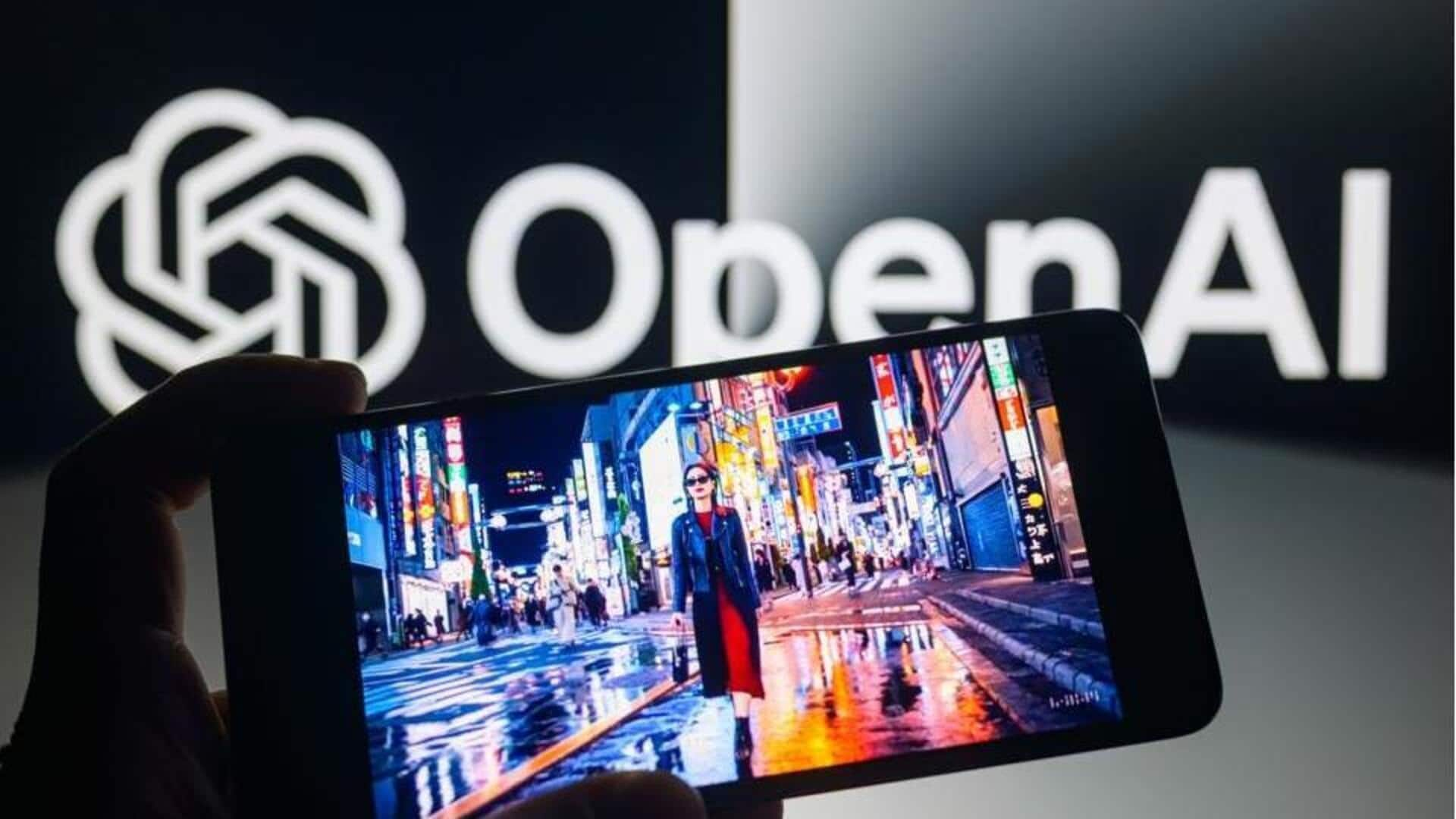
OpenAI's TikTok-like app for AI-generated videos is coming soon
What's the story
OpenAI is gearing up to launch a dedicated app for its video generation AI model, Sora 2. The upcoming app has a vertical video feed with swipe-to-scroll navigation, much like TikTok. However, the content on this platform will be entirely AI-generated. It also features a recommendation algorithm-driven page similar to TikTok's For You page.
App capabilities
Users can create clips of up to 10 seconds
The Sora 2 app lets users create video clips of up to 10 seconds using OpenAI's advanced video model. However, it doesn't allow uploading photos or videos from a user's camera roll or other apps. One of the standout features of the app is its identity verification capability, which lets users confirm their likeness and use it in videos after verifying their identity.
User interaction
Notification on likeness usage
When a user's likeness is used in a video, they will get a notification. This applies even if the clip is just in draft form and not posted. The app was launched internally last week and has been getting rave reviews from employees. They've been using it so much that some managers have joked about it being a potential productivity drain.
Market rivalry
Competition in the AI video space heats up
OpenAI's Sora 2 app will take on new AI video products from tech giants Meta and Google. Last week, Meta launched a new feed in its Meta AI app called Vibes, which is dedicated to creating and sharing short AI-generated videos. Earlier this month, Google announced it was integrating a custom version of its latest video generation model, Veo 3, into YouTube.
Content regulations
Copyright issues and lawsuits
TikTok has been more cautious with AI-generated content, recently updating its rules on the type of AI-generated videos it allows. The platform now explicitly bans misleading or harmful AI-generated content. Meanwhile, the Sora 2 app often refuses to generate videos due to copyright protections and other filters. OpenAI is currently embroiled in several lawsuits over alleged copyright violations, including one by The New York Times for training its models on copyrighted material.